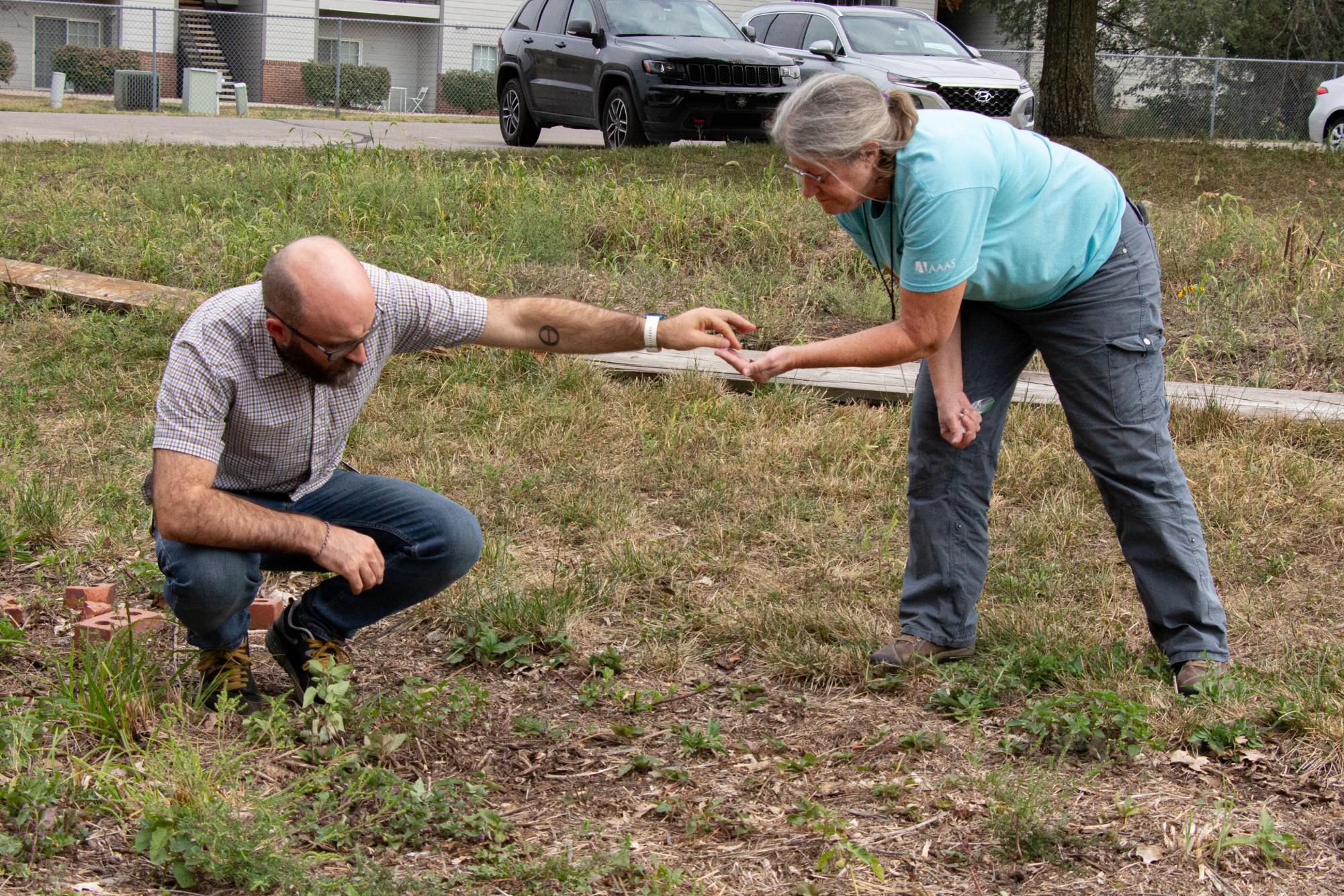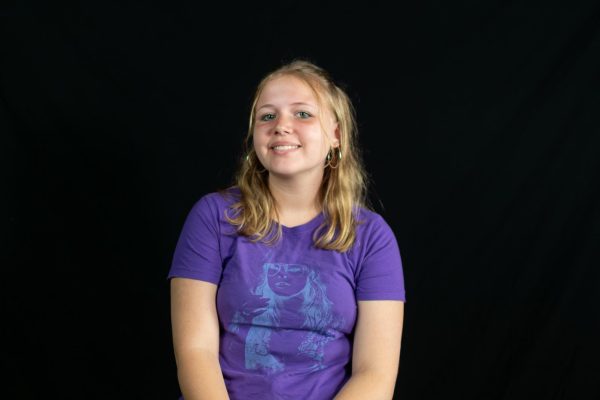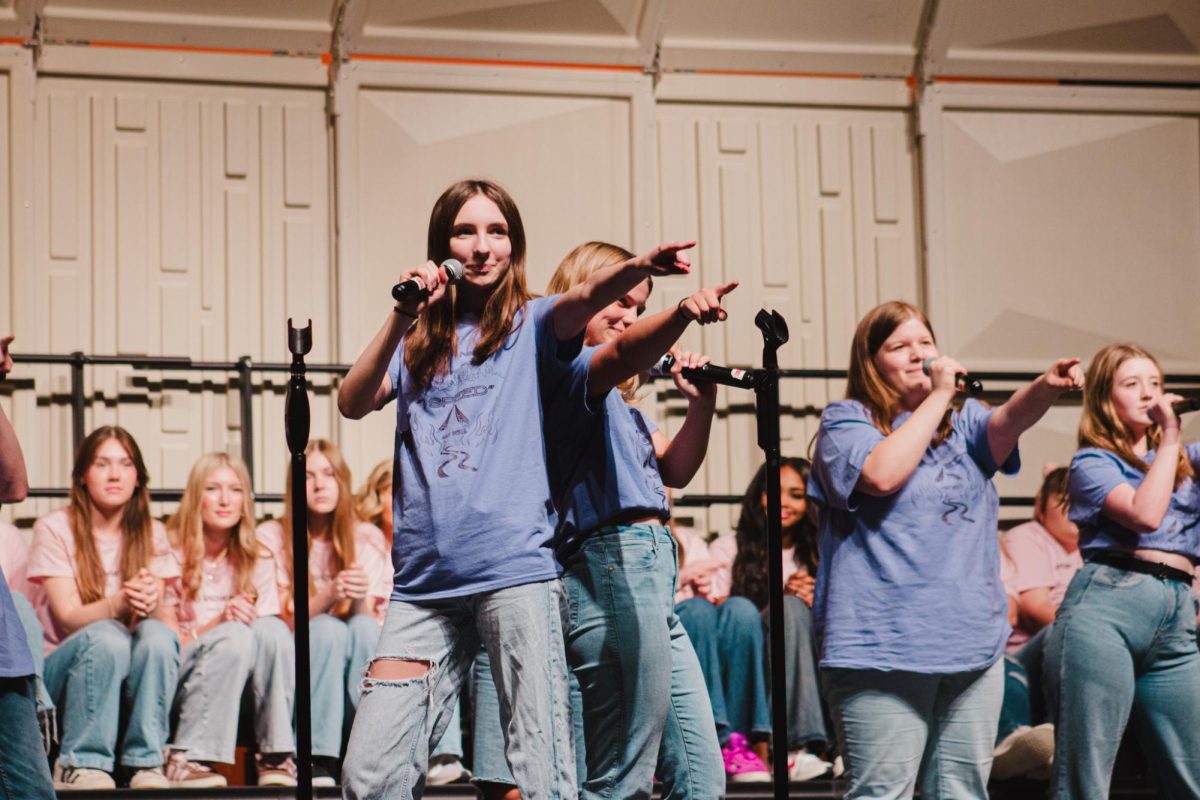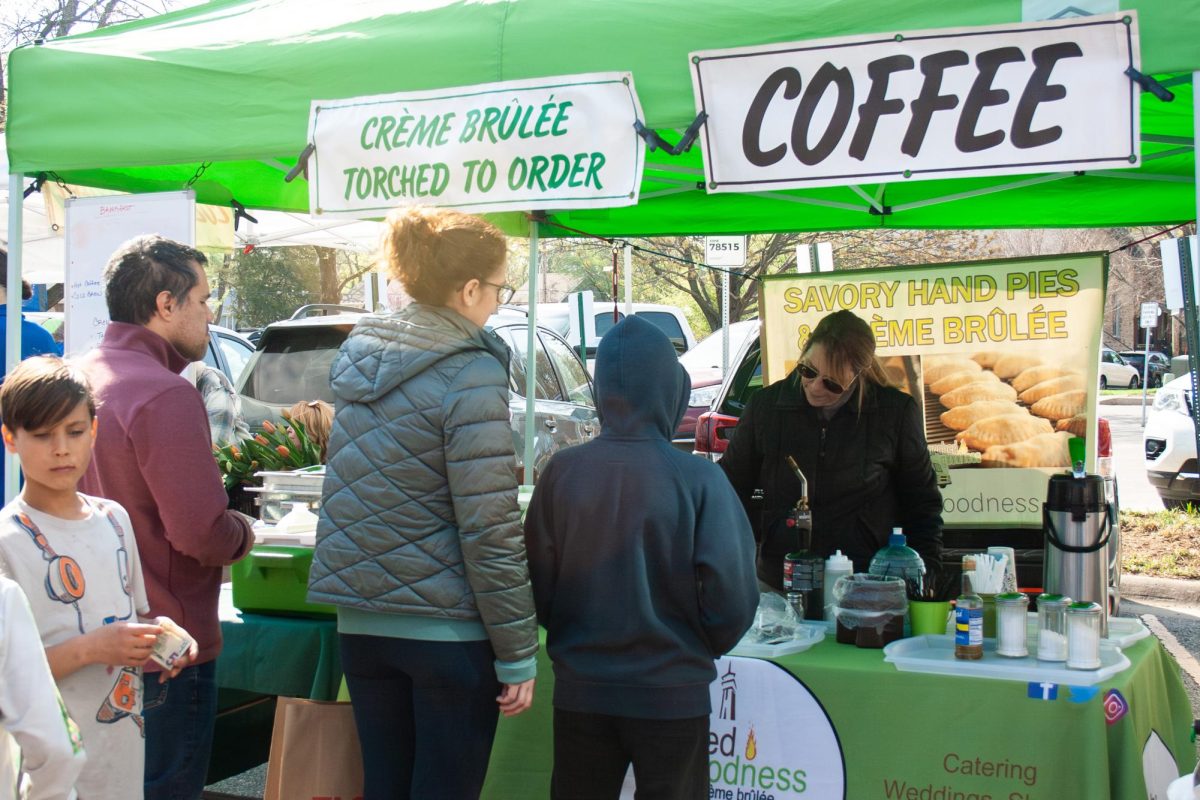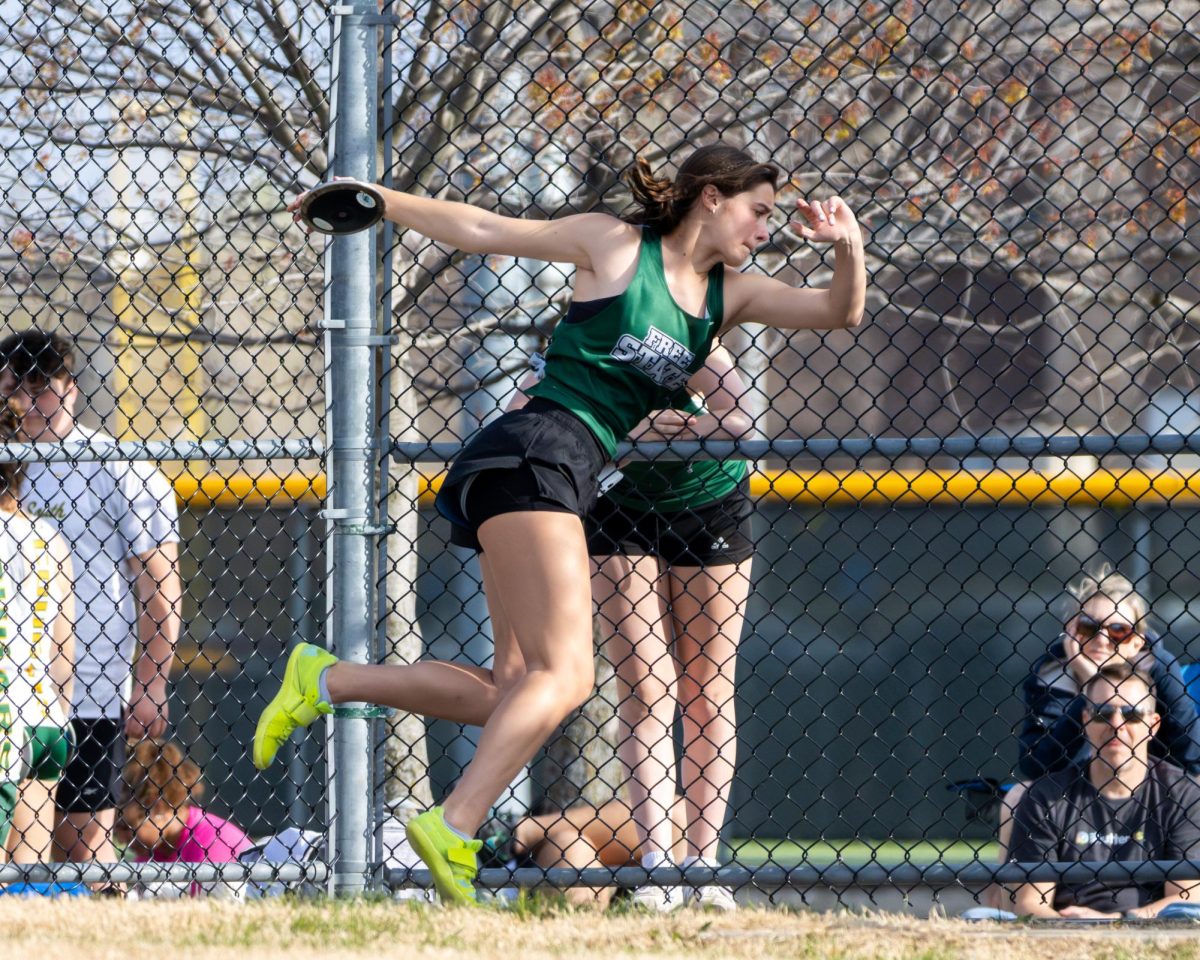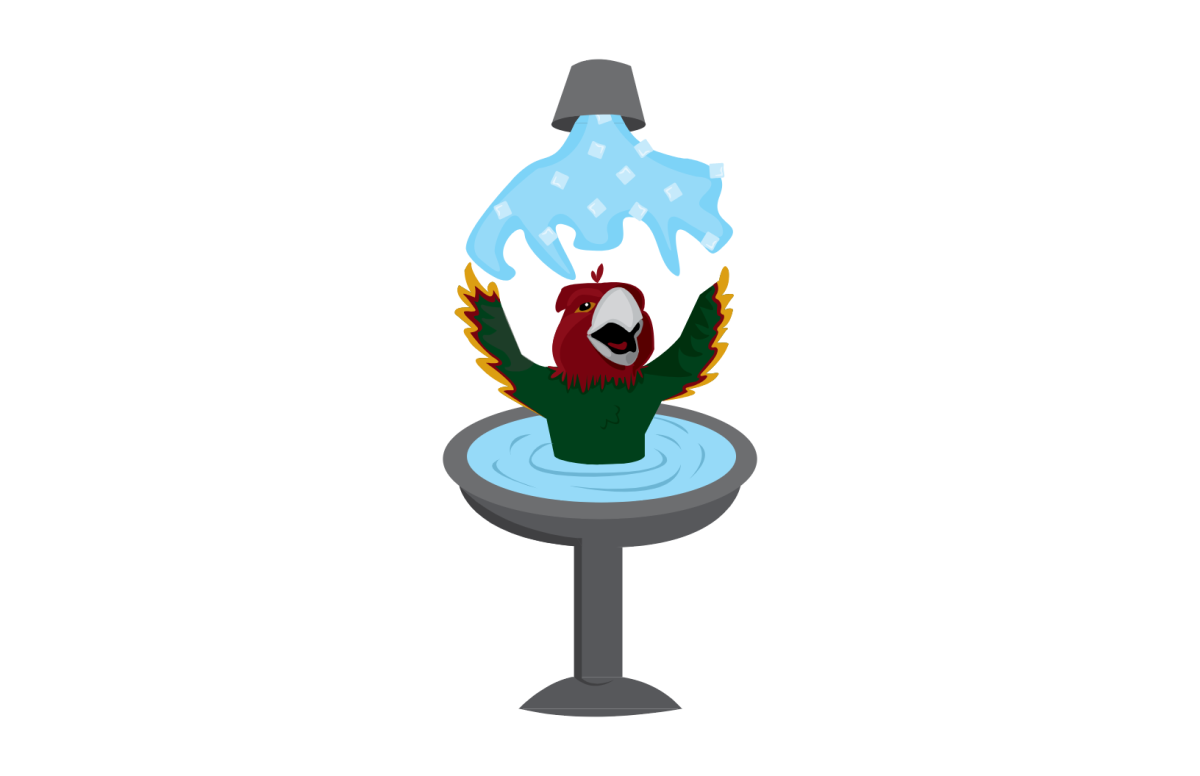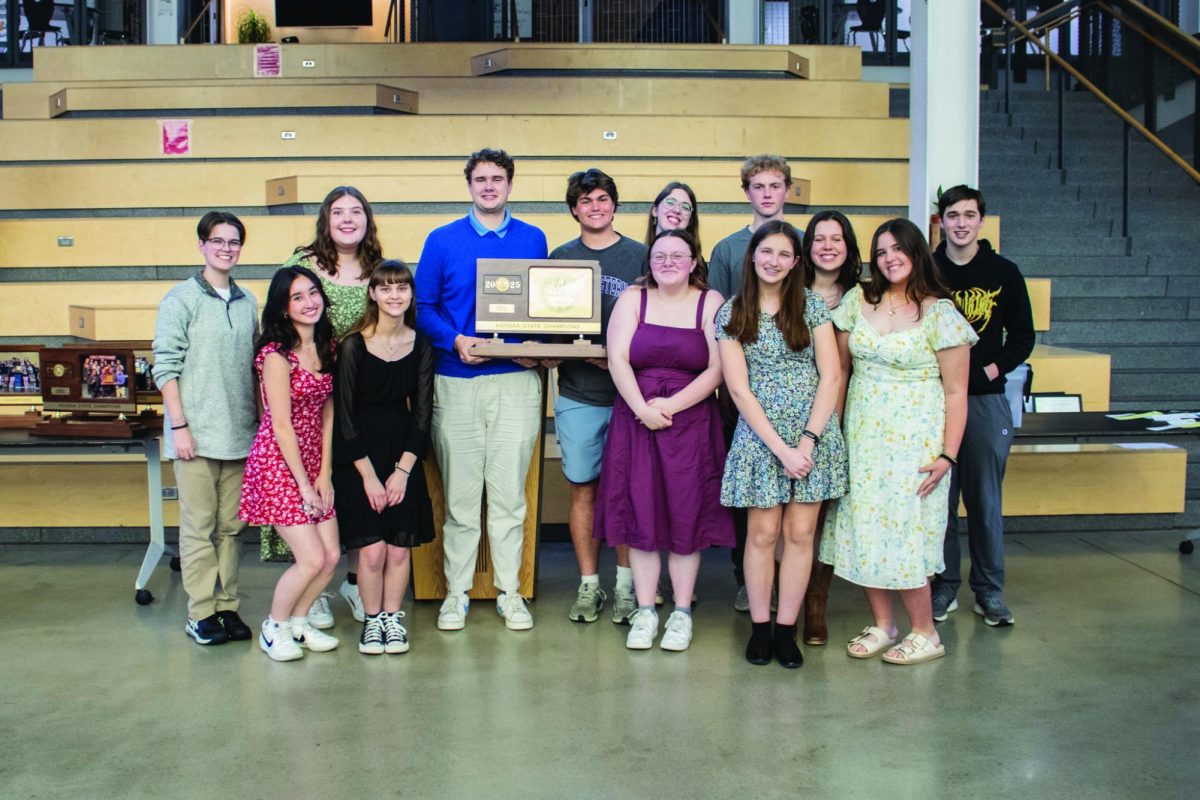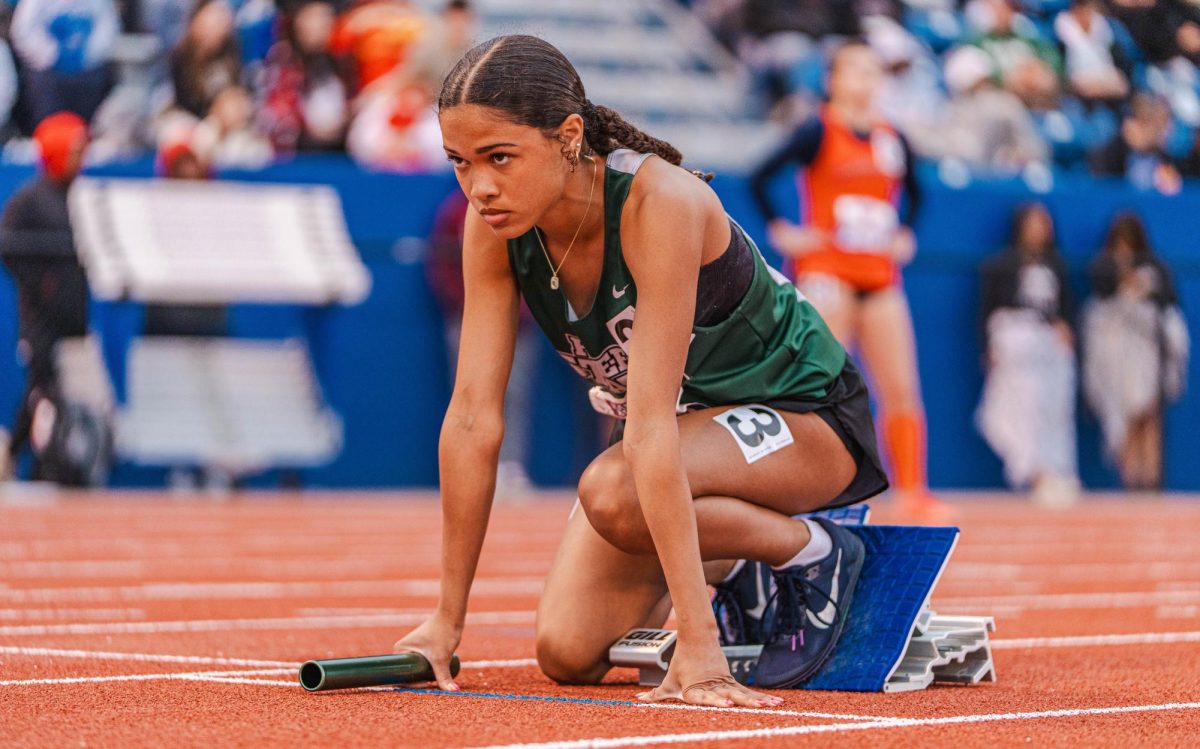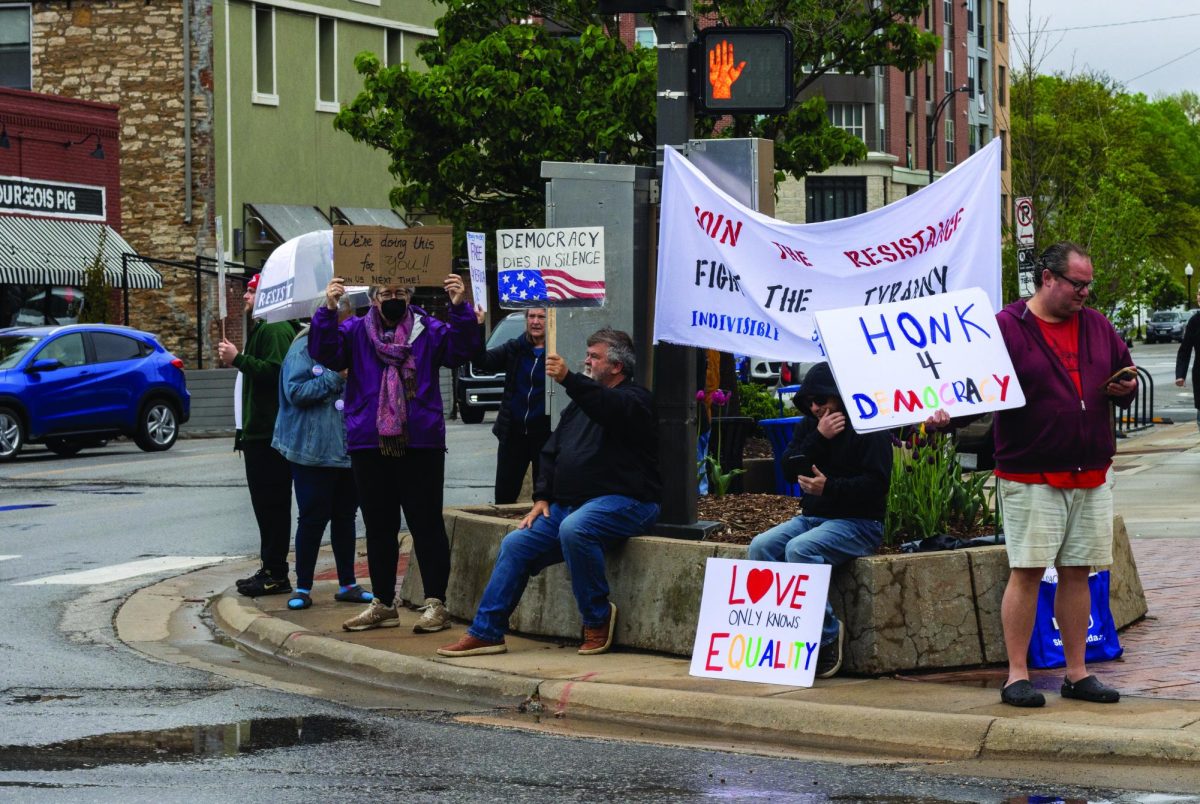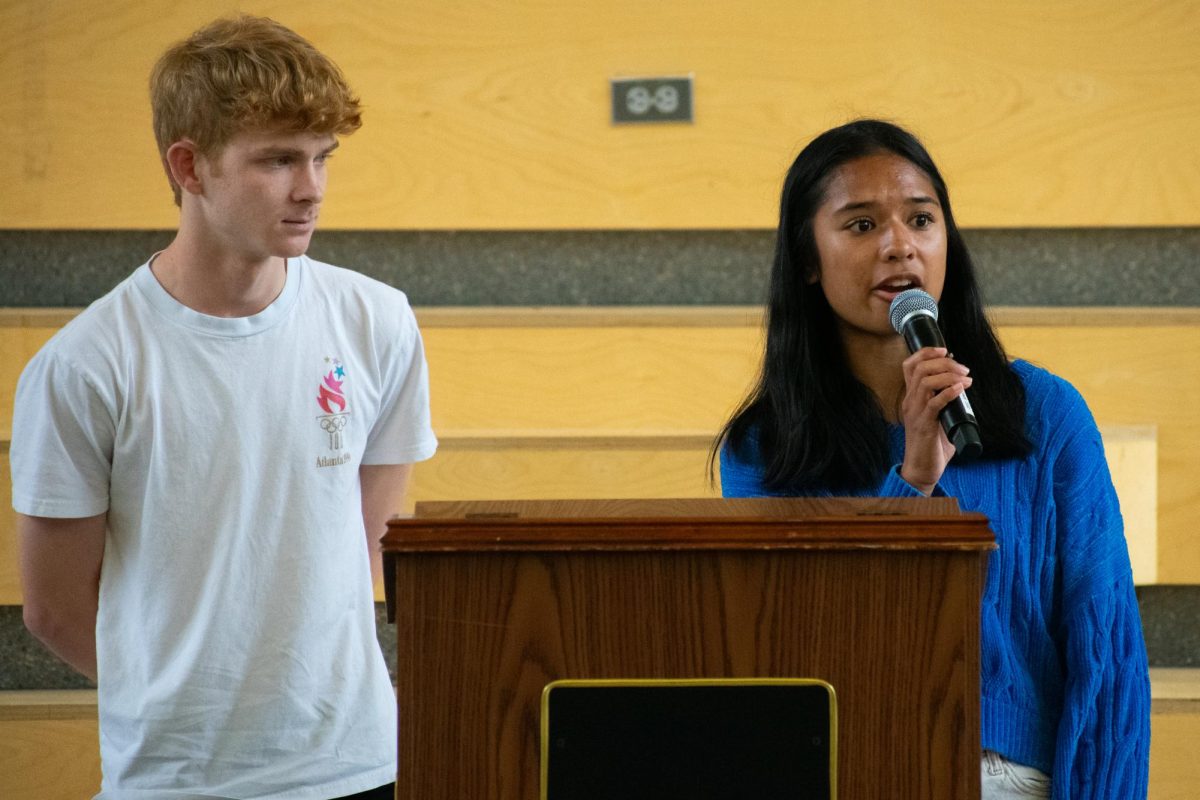At the end of the recent school year, members of the Green Team planted an annual fruit and vegetable garden as well as a native plant garden. The Green Team, formerly the Garden Club, advocates for environmental consciousness and green space, according to senior Lily Dixon.
Over the summer, the Green Team planned a clean-up day for the annual garden. When Green Team sponsor and environmental science teacher Julie Schwarting came to the workday, she found their garden ruined.
Over the summer, principal Amy McAnarney emailed Green Team sponsor and environmental science teacher Julie Schwarting, asking if it was okay if the district mowed. Schwarting responded, saying that they had a workday planned the following weekend and to not disturb the garden, but when students arrived to clean up the garden, they found that it was already mowed down.
When the Green Team found that their garden was flattened, Schwarting and members said they felt discouraged.
“I was shocked and disheartened, because it’s not the first time that this has happened,” Schwarting said.
After seeing what remained of the garden, Schwarting quickly contacted the Farm 2 School coordinator, Pantaleon Florez.
“Florez immediately wrote a letter to the board, saying, ‘This should not have happened. This is part of our curriculum,’” Schwarting said.
Members, like senior Lily Dixon, felt ignored by the district.
The native plant garden is a rain garden that provides shelter to native insects and animals. Additionally, biology, plant science and environmental science students use the garden to learn about food chains and life cycles.
“We use those native plants in our biology curriculum. We go out there and we use that to make observations about food chains and food webs and ‘what do native plants look like? How are they different?’” Schwarting said.
Alongside the native garden, the annual garden was mowed over. The annual garden is used to grow food that is then donated to Just Food, a local food bank. Schwarting says that students that have taken environmental science enjoy helping grow food.
“They’re excited about growing food. By the time a person finishes taking environmental science or AP environmental science, they realize how we have a real shortage of good, healthy food, but also that we don’t have enough education about where our food comes from,” Schwarting said.
Moving forward, the Green Team had plans to keep up communication with the district.
“I think communicating with the district is huge, and it’s a complicated system…but [we will] definitely keep in touch with Pantaleon because he’s a huge advocate for all of us,” Schwarting said.
Alongside communication with the district, the Green Team plans to open up the garden to students outside of Free State.
“We wanted to invite a bunch of teachers, maybe from LHS, maybe from Bishop Seabury, and have a garden day, as well as inviting [someone] like Mrs. McAnarney, and show them the space we created, the community we created, and just see if we could work together, as one,” Dixon said.


